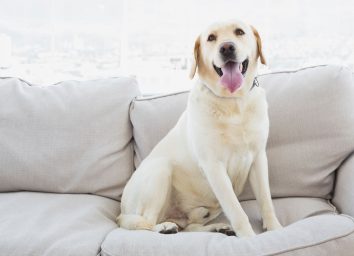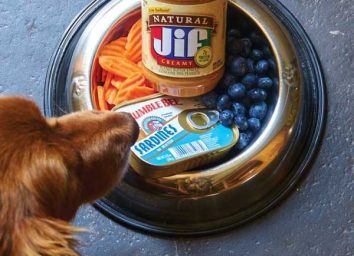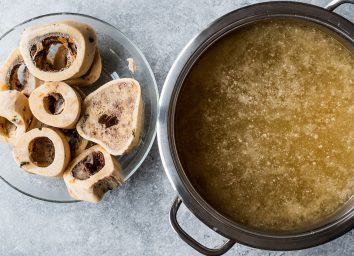13 Foods Dogs Can't Eat So You Know How to Keep Your Pet Safe

You probably already know that chocolate is dangerous for your dog. But as a responsible guardian-pet parent-butler-BFF to your furry friend, you should also know that there are actually lots of other foods that can be harmful to your pet and that should be on the "do not feed to Fido" list. It turns out, there are actually a lot of foods dogs can't eat; the list goes way beyond chocolate.
We asked veterinarians about the human foods that you should keep away from your dogs. Here are 13 lesser-known foods that vets say can be toxic, cause obstructions, or otherwise be harmful to your dog.
Apple seeds
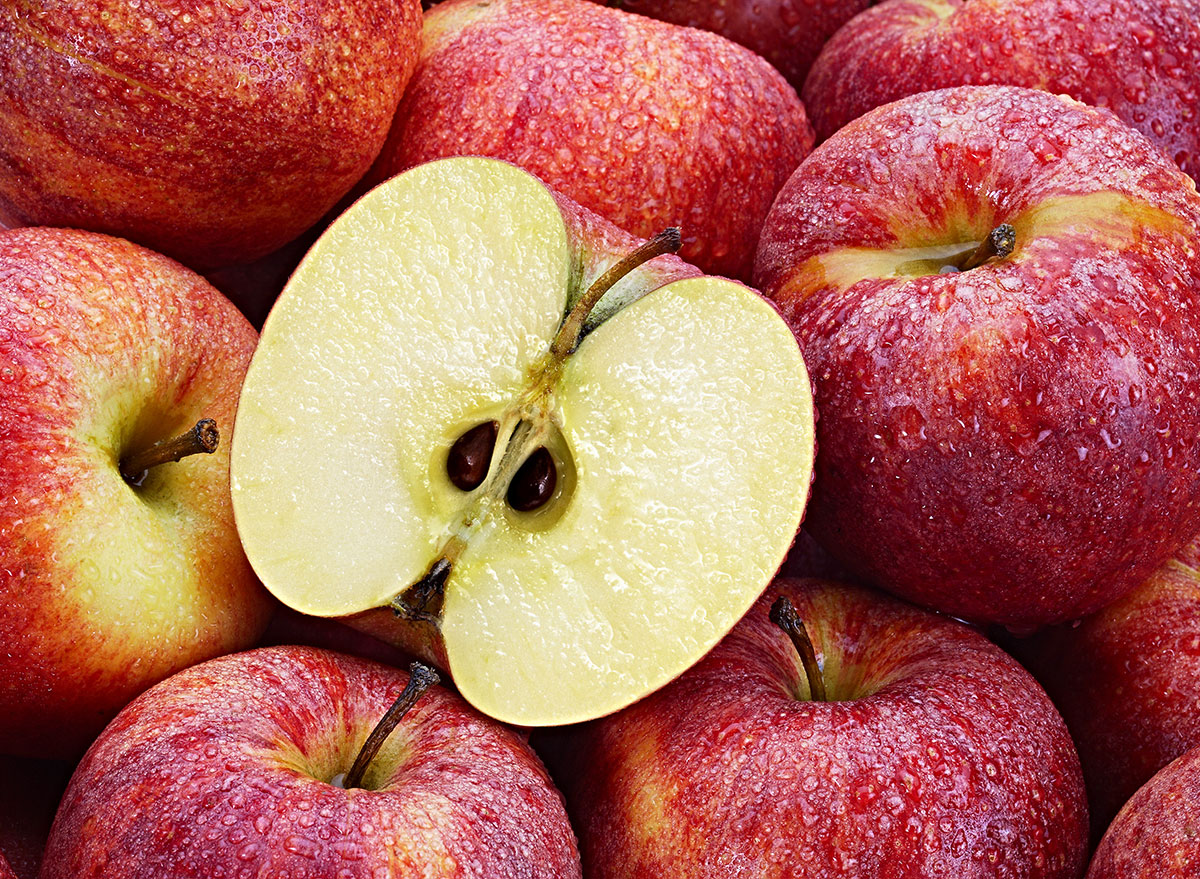
If you've got an apple tree and your dog treats the backyard like a buffet, you'll want to make sure he's not chomping on too much of the fruit. Apple seeds contain amygdalin, which when chewed up and digested can convert to low levels of cyanide. "A small quantity isn't a big deal," says Dr. Gary Richter, a veterinary health expert with pet care site Rover.com. "But if your dog eats a lot of apples, this could become a problem."
Hops
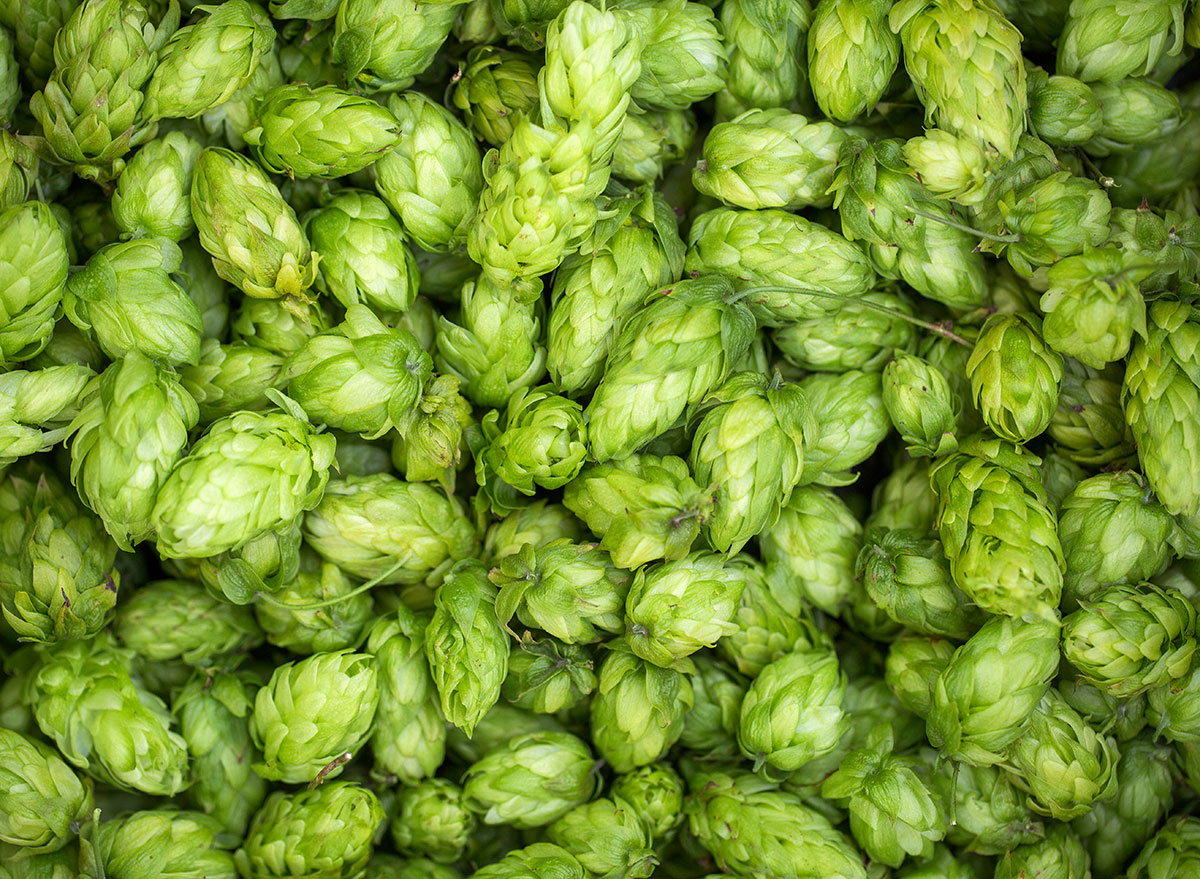
Homebrewers: Keep your dog away from your hops stash, Richter says. "Hops from home brewing beer and beer can raise a dog's body temperature alarmingly high—as much as 108 degrees Fahrenheit, which can lead to seizures and multiple organ failure," Richter says.
Bread dough
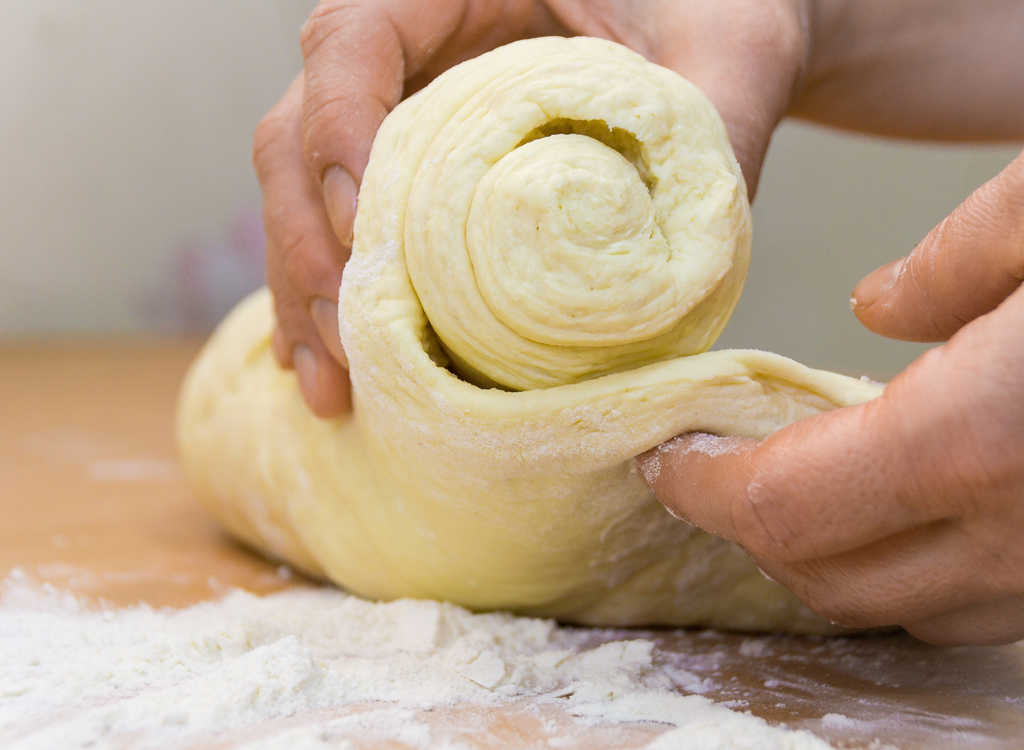
Keep an eye on your mischievous counter surfer if you are baking bread. "The yeast in bread dough can cause multiple problems for dogs, from distending their stomachs to airway blockage," Richter cautions. Plus, the multiplying yeast can create alcohol, which compounds problems for your dog, who could become intoxicated. Symptoms from bread dough ingestion include disorientation, malaise, and vomiting, Richter says.
Grapes and raisins
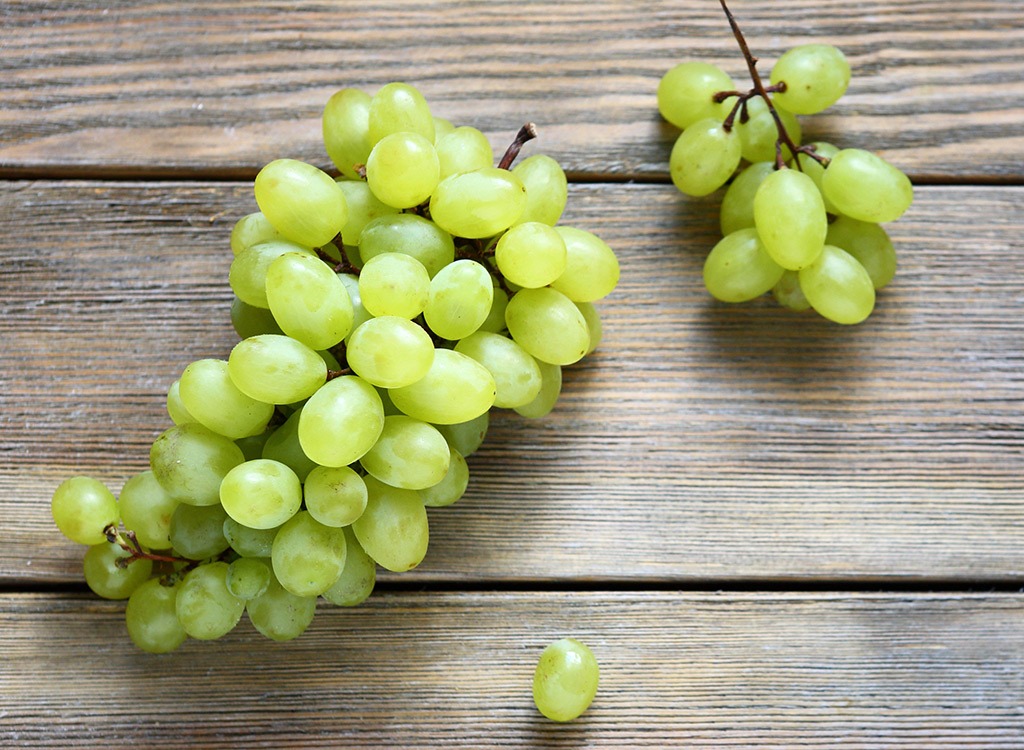
Grapes and raisins are known to cause kidney failure in dogs, says Dr. Alison Mason, DVM and Medical Director at VCA Hope Animal Hospital in Brooklyn, New York. Dogs have higher or lower tolerances for grapes in different quantities, but as a precaution, she warns against feeding them to dogs. In severe cases, grapes and raisins could lead to kidney failure.
Garlic and onion

Garlic and onion are both known to cause anemia in dogs, Mason says. "If your dog has ingested either of these, take him to your vet to get his blood count looked at to make sure he hasn't developed the disease and in need of treatment." Signs of anemia in a dog could include pale gums, tiredness, decreased appetite, and black, tarry stools. Treatment for anemia could range from medication to surgery.
Avocado
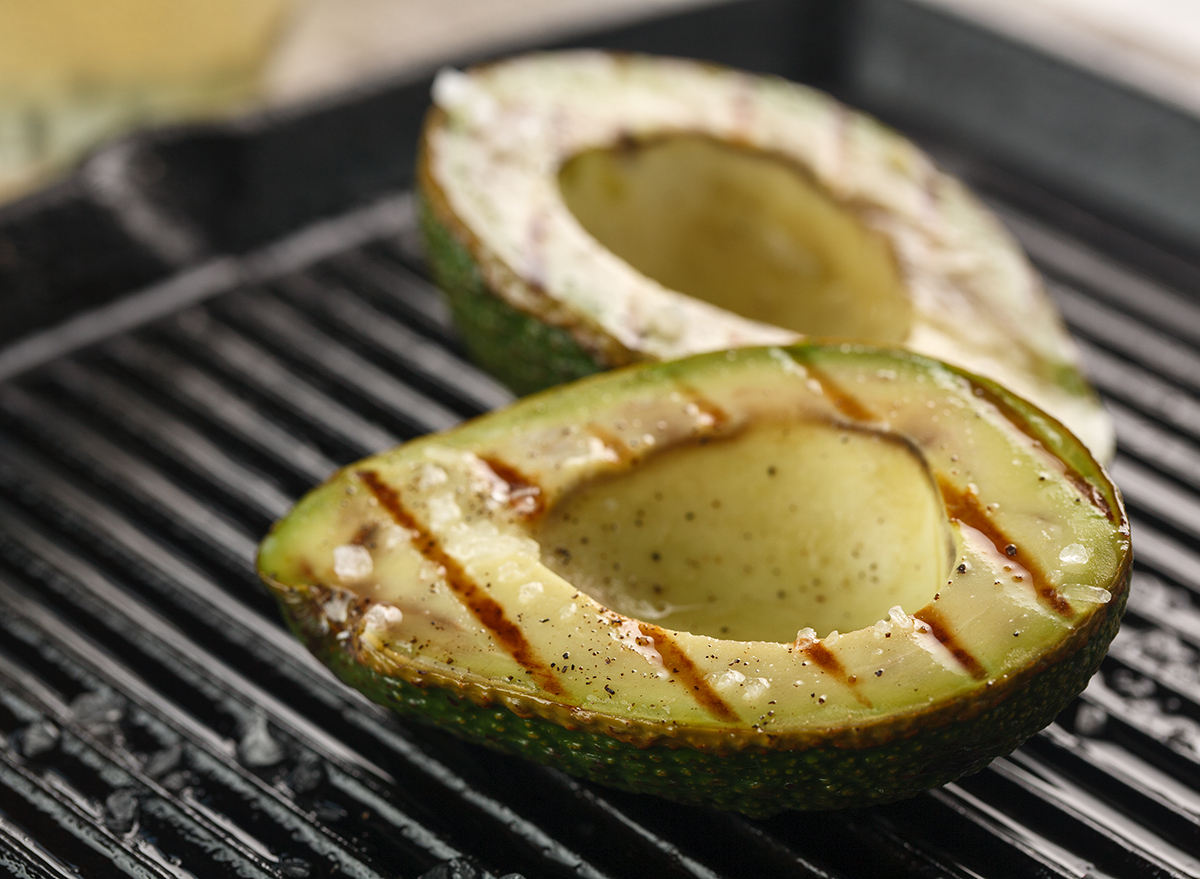
In addition to avocados, peaches, plums, and apricots should be on the no-no list, too. "The biggest note of caution here is to avoid feeding any foods to your dog that have pits," Mason says. That's because your pet can choke, or the pits can cause an obstruction in their intestines, she explains.
But avocados can be doubly harmful for pets because it also contains persin in the pulp. "For humans, this substance is just fine, but it is highly toxic for animals, including dogs, and can cause diarrhea and vomiting," says Dr. Amanda Nascimento, Head of Integrative Veterinary Medicine & Research at NHV Natural Pet.
Cooked meat bones
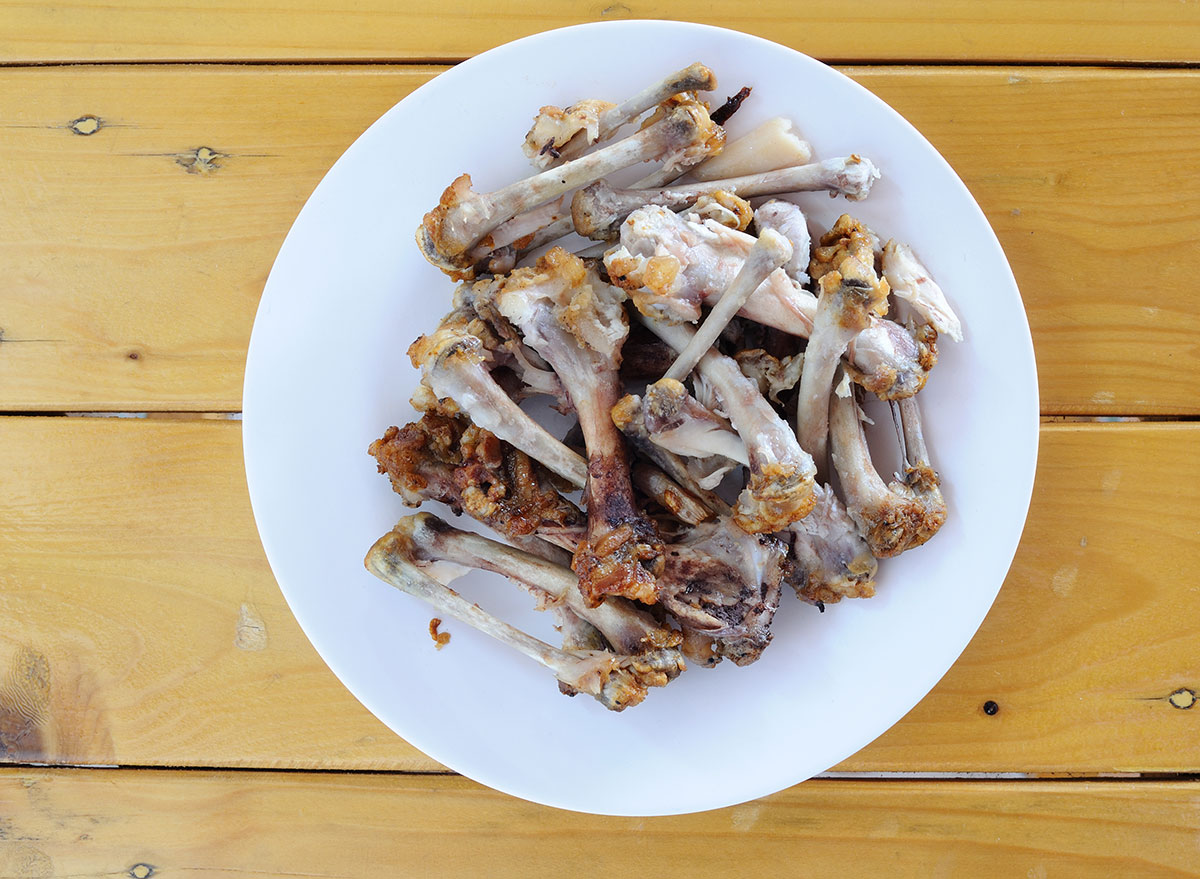
Poultry, pork, and cooked meat bones can be very hazardous for dogs, veterinarians warn. "They can splinter and cause blockage or lacerations in the gastrointestinal tract," says Dr. Rachel Barrack, DVM, founder of Animal Acupuncture in New York City.
While this may surprise you, dogs' teeth are actually pretty sensitive, Mason says, so hard bones can cause their teeth to crack or even break.
Macadamia nuts
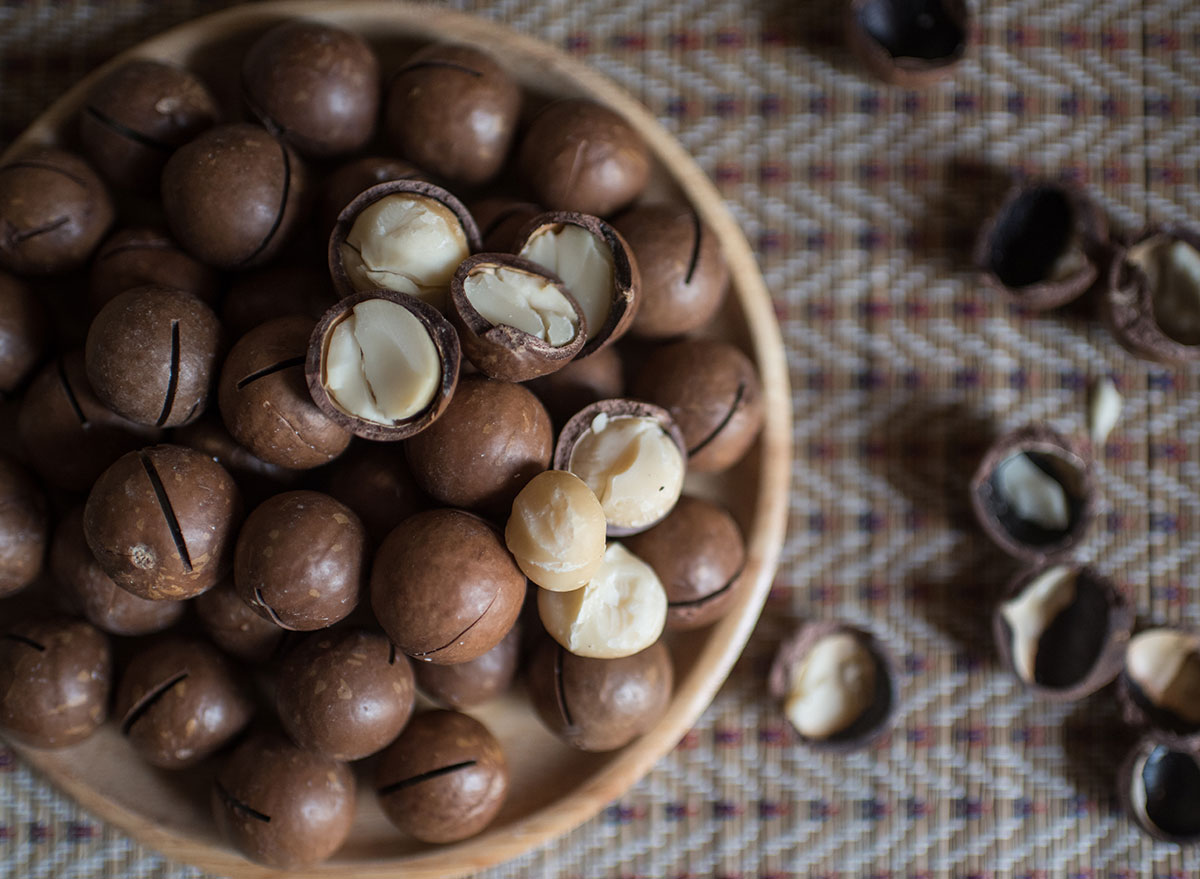
It's a mystery as to what's in macadamia nuts that makes them toxic for dogs. However, the nuts can cause major problems for your pet, including weakness, vomiting, lethargy, tremors, and other symptoms in dogs, explains Dr. Peter Lands DVM, Director of Emergency Medicine and Critical Care at Saint Francis Veterinary Center located in New Jersey. If your dog has eaten macadamia nuts, treatment may include induced vomiting to rid him of the toxin, activated charcoal to prevent absorption of the toxin, as well as intravenous fluids, Lands explains.
Raw meat
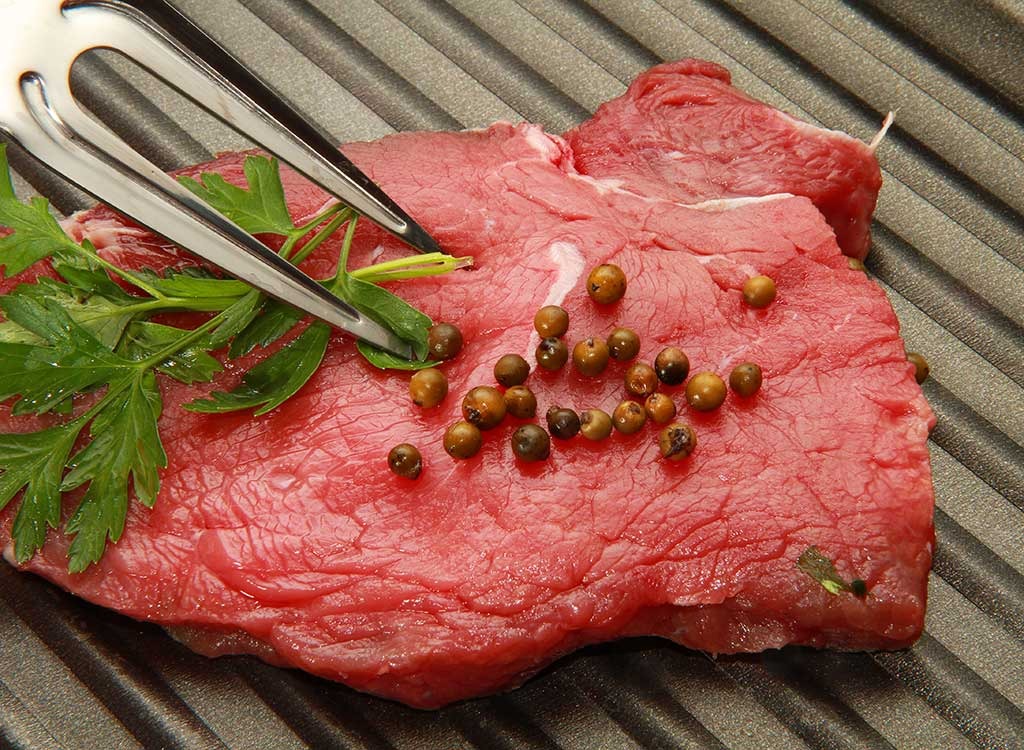
Just as it is for humans, raw and undercooked meat can be harmful to pets, too, because it can contain Salmonella and E.coli. These bacteria, Lands says, can cause significant gastrointestinal problems in animals, including vomiting and diarrhea.
Gum and candy
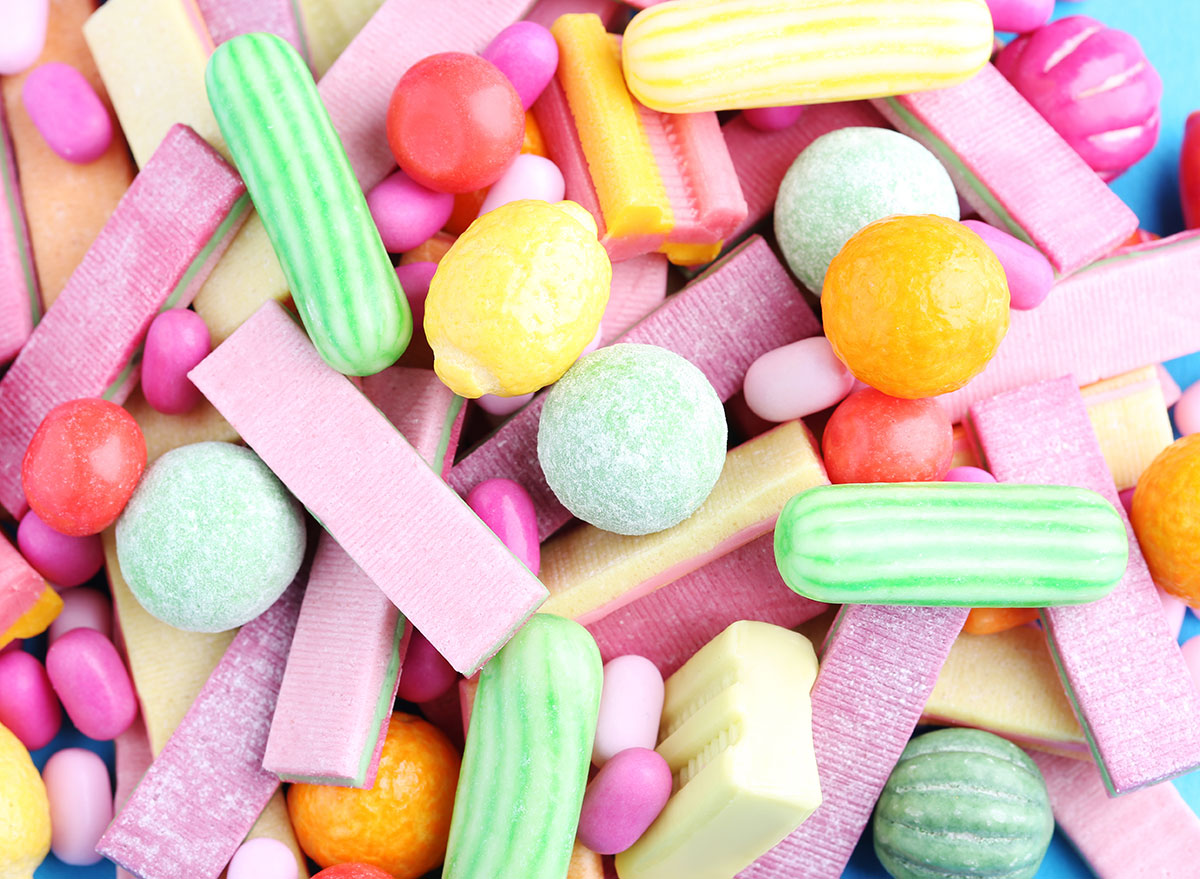
Xylitol is an artificial sweetener that's found in some mints, candy, and gum. "In humans, it has little effect on the body, but in dogs, it causes an insulin spike," Lands explains. Subsequently, that leads to hypoglycemia, or very low blood sugar. Signs that your dog ate the sugar substitute could include lethargy, shaking and trembling, and seizures, which could happen as quickly as 30 minutes after ingestion and up to 24 hours, he says. If your dog has eaten foods with this sugar substitute, your vet will want to remove any undigested xylitol by inducing vomiting.
In addition to the candy itself, candy wrappers can also be a threat because they can cause intestinal obstructions, says Barrack, which requires surgery.
Some peanut butters
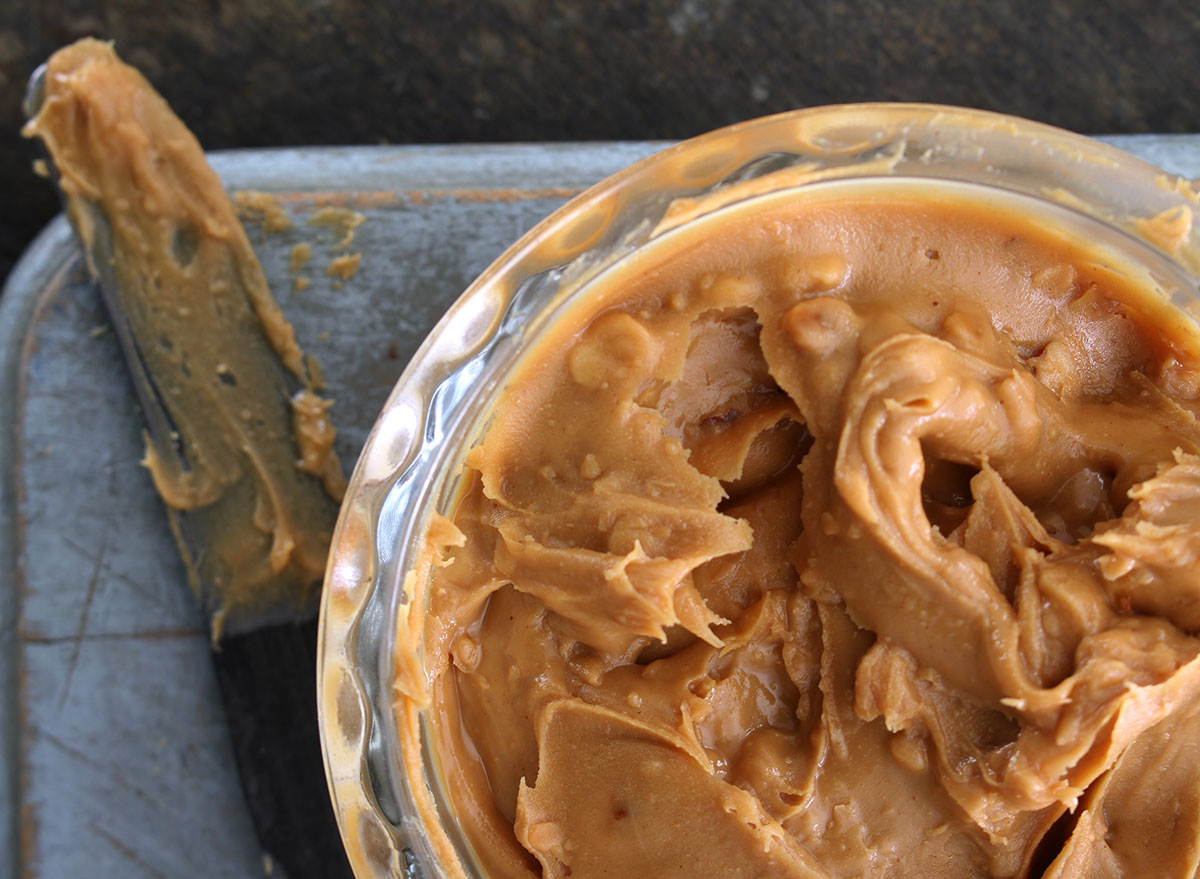
Dogs love peanut butter! And, lucky for their guardians, the creamy peanut spread is a great way to conceal any medications your pet may otherwise snub. But it's important to check the label to make sure there is no xylitol in the ingredients list. Xylitol is in some peanut butters, like P28 High Protein Peanut Spreads. Also, look for "natural sweetener" or "sugar alcohol" on the labels—those may be clues that xylitol is present.
Milk
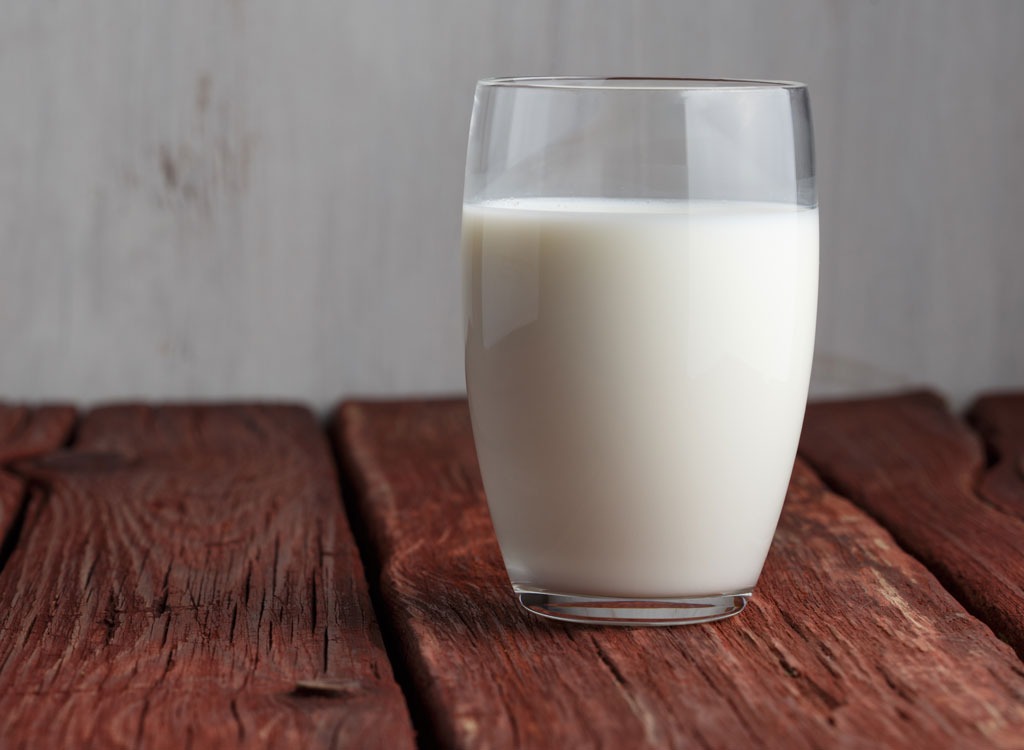
Milk, as well as other dairy products, can be especially bad for dogs, causing vomiting, diarrhea, and skin allergies, Nascimento says. It's best to err on the safe side and keep any dairy products away from your furry friend.
Coffee beans and grounds

The caffeine in coffee, coffee beans, and coffee grounds is bad for your dog and can cause restlessness, tremors, abdominal discomfort, and excessive bleeding, Richter says. If your dog has ripped open a bag of coffee beans or absconded with a filter of coffee grounds from the trash, prompt medical attention is necessary.
The takeaway here: While it can be tempting to "treat" your dog to human food every now and again, the foods on these lists should be kept away from your pup—no matter how cute he looks begging under the table in a bow tie.
